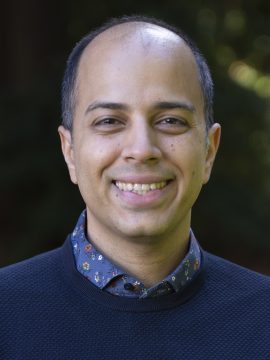Amirpouyan Shiva
Research Area
Research Stream
About
I received my PhD in socio-cultural anthropology from the University of Minnesota in 2018. My PhD fieldwork research in the Persian blogosphere mainly examines how people change in the process of media-making and media-receiving. It addresses the questions of how, in a ubiquitously mediated world, the creativity of media practices takes an inward direction to fashion inner selves and how, in turn, those subjectivities affect social, cultural, and political transformation.
My research demonstrates that transformations in individuals and collectives for which humans often feel pride are not exclusively human, but are dependent on and shaped by media, a force that helps transform human selves, indeed because it is the Other of the traditional image of what is human. My research, therefore, contributes to a movement in anthropology that examines the ways in which we, humans, exist in worlds that extend beyond us. I ask: what would we make of the humans that our discipline, anthropology, studies, if we took seriously the other-than-humans that help construct human selves and worlds?
In my ethnographic investigation of co-construction of media and individuals in contemporary Iran, I look to ontological ideas, found in two radically different traditions, Perso-Islamic mysticism and the internet culture in Iran, to problematize the ontological assumptions that inform much of media anthropological thought.
Before joining UBC’s Department of Anthropology as a lecturer, I taught anthropology courses at the University of Minnesota and Macalester College as well as the graduate qualitative methods seminar at UBC’s Sauder School.
Teaching
Research
I am a linguistic and media anthropologist with an interest in the anthropology of science and technology. My research focuses on digital media practices, the creation of selves in social media, the socio-political outcomes of online media-making and media-receiving practices, and theoretical issues of subjectivity, technology, and mediation. Broadly, my research explores how the creativity of media-making practices takes an inward direction to fashion inner selves and how, in turn, the selves fashioned in interaction with and communication through digital media affect social and political transformation. My interdisciplinary work draws on new media studies, linguistics, and technology studies. My regional expertise is Iran, Persianate Societies, and the Middle East.
Methodologically, I am specialized in virtual and online ethnography and have conducted my doctoral ethnographic research in the Persian blogosphere.
Publications
Shiva, Amir-Pouyan (2016) Understanding Users: The Extensions of Expectant Systems; In: 2016 Ethnographic Praxis in Industry Conference Proceedings; p. 120–133. doi:10.1111/1559-8918.2016.01080
Additional Description
Lecturer, Sociocultural Anthropology
Email: ashiva@mail.ubc.ca
